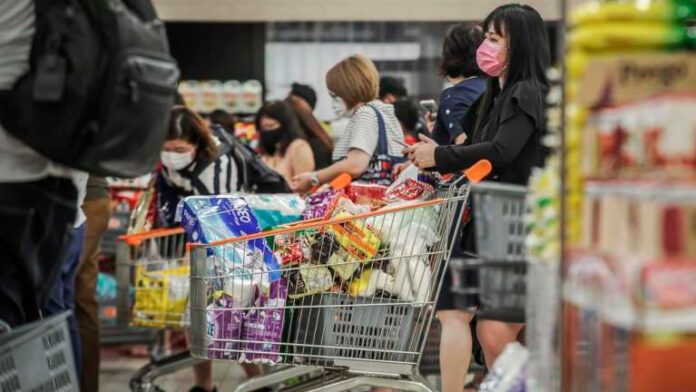KUALA LUMPUR, May 30 — The government’s decision to do away with the approved permit (AP) to import food items with immediate effect on May 18 is the right step to stabilise food prices, says Universiti Putra Malaysia’s Faculty of Agriculture Professor Prof Datuk Dr Mad Nasir Shamsudin.
He said the world was currently experiencing a food price crisis with rising costs of supplies including feed for livestock.
He said that based on information from industry players, the measures taken by the government had begun to show a positive effect as food prices in the market saw a dip.
“The government has two policy options, namely to take care of producers or take care of consumer welfare.
“For the abolition of the AP, prices will go down, this means that the government is looking after the welfare of consumers, apart from managing the country’s inflation rate,” he said while appearing as a guest on Bernama TV’s Ruang Bicara programme tonight, which also featured Mydin Mohamed Holdings Berhad managing director Datuk Dr Ameer Ali Mydin.
Ameer Ali, who is also Bumiputera Retailers’ Association president described the repeal of the AP as a bold move by the government which provided relief, especially to traders and consumers to get food supplies at reasonable market prices.
“Right now for the AP, we focus very closely on chicken, but cabbage has now also dropped in price because there is no AP. We have dropped the price (of cabbage) by more than 40 sen. Due to the (implementation of) AP (prior to this), we had to pay (an extra of) about 30 to 40 sen.
“(So) the repeal of the AP has really helped the people to get a fair and competitive price,” he said.
On May 18, Prime Minister Datuk Seri Ismail Sabri Yaakob announced that the Cabinet had agreed not to impose APs to import food items with immediate effect to ensure the country had an adequate food supply.
However, Mad Nasir was of the view that doing away with the AP completely was not very suitable in the long run, as he was worried that it would affect the country’s food self-sufficiency level (SSL) and stray from the strategic plan on promoting local food production.
He said since the SSL for basic food in the country was low, it was important for the country to protect its food production industry and re-establish the AP when the situation recovered in the future to maintain the country’s food security.
“We need to understand, that the AP aims to ensure that certain quotas for food imports are set to boost the country’s agricultural production and help local farmers,” he said.
Based on the National Agro-Food Policy 2021-2030, SSL is defined as an indicator measuring a country’s ability to meet food needs from its own domestic production.
Mad Nasir also suggested that all state governments create more agricultural land with the help of the Federal government to provide incentives based on yields, besides inviting more young people to be involved as agricultural entrepreneurs.
















